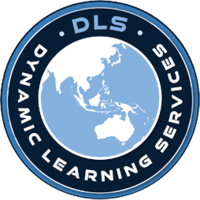Course providers in Canberra
The following providers offer the FBP30121 Certificate III in Food Processing in Canberra.Entry requirements
Entry requirements set by ASQA are the basic qualifications and criteria that students must meet before enrolling in a nationally recognised course.
These requirements ensure students have the skills and knowledge needed to undertake this course.
- There are no formal academic requirements
- Additional entry requirements are set by individual course providers
Course fees
The estimated fee reflects the price range across training providers in Canberra.
The course fee is determined by each individual provider and may vary depending on factors like study mode and student support availability.
Career opportunities
The Certificate III in Food Processing will prepare you for the following roles.
Food Production Worker
A Food Production Worker performs a range of tasks during the production of food or drink products. You might be involved in preparing and mixing i...
Food Process Worker
A Food Process Worker is part of the overall manufacturing team at a food or drink making facility. You might prepare ingredients to make food or d...
Production Worker
A Production Worker plays a vital role in manufacturing and production settings, handling tasks such as assembling products, operating machinery, a...
Food Production Supervisor
A Food Production Supervisor manages a team of workers at a food processing facility. You might supervise the overall production of food and drink...
Production Operator
A Production Operator uses a range of plant and equipment in the mining industry. You might work in a metalliferous processing facility or in coal...
Find a course provider
Compare all providers for the available in Canberra to find the right fit for you.
More about Certificate III in Food Processing
Embarking on a journey through the Certificate III in Food Processing course in Canberra can open doors to a variety of exciting career paths in the food industry. Students will attain essential skills and knowledge required for roles such as a Production Worker, Food Production Worker, and even as an Assistant Baker. The skill set gained will not only make one an ideal candidate for these positions but also provide an edge in competitive job markets within Canberra’s thriving food processing sector.
In the Canberra region, several esteemed training providers are readily accessible for those looking to complete their studies face-to-face or through online modes. Prominent institutions like the Kangan Institute, DLS, and AFTC offer comprehensive training tailored to meet industry standards. Additionally, IIFP and the Australian College of Training are recognised providers in the area, making it convenient for students to find suitable courses that match their learning preferences.
The Certificate III in Food Processing is particularly linked to numerous fields of study, including Manufacturing courses and Engineering courses, ensuring a well-rounded education experience. Additionally, specialised areas like Food Processing and Manufacturing Plant studies are crucial for those aspiring to excel in this ever-evolving industry. With Canberra’s strong emphasis on quality and sustainability in food production, students will prepare for extensive opportunities in diverse roles such as Food Process Worker and Food Production Supervisor.
Graduating from the Certificate III in Food Processing allows individuals to pursue various roles tailored to their interests, from becoming a Micro Brewer to an Apprentice Butcher or even a Brewer. With hands-on training and guidance from local experts, graduates will boost their employability in roles that play critical parts within the city's robust food sector. By taking the first step in their educational journey today, students in Canberra are well-positioned to thrive in the ever-expanding food processing landscape.





